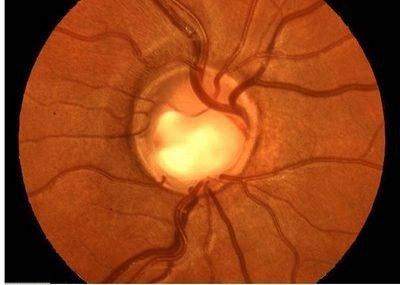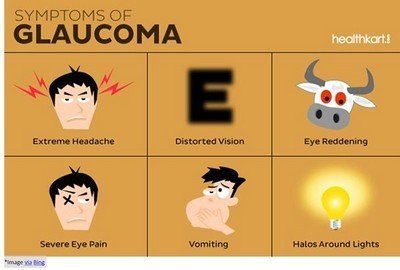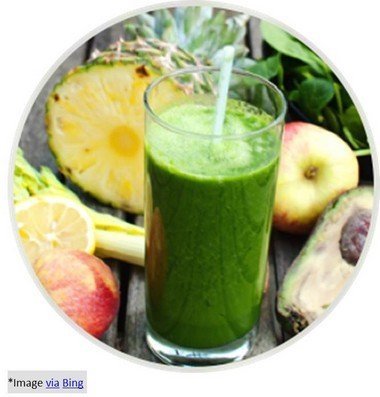Eyes are one of the most invaluable gifts of nature. We understand their true significance only when we face some serious eye problems. It is our responsibility to keep our eyes in good condition so that they can serve us efficiently for the longest period of time that they possibly can. Eyes are extremely delicate organs and are susceptible to many diseases and conditions that can hamper their normal functioning, cause loss of vision, or even total blindness. Glaucoma is one such condition that if left untreated can progressively lead to the serious consequences mentioned above. It is therefore important that we understand what exactly glaucoma is, what causes it and how can glaucoma be treated or prevented using natural remedies.
What is glaucoma?
It is a serious condition of the eyes in which the optic nerve gets damaged. This can lead to a partial or complete loss of vision. Often referred to as the ‘silent thief of eyesight’, glaucoma secretly develops without any major symptoms in the initial stages. This makes the prevention and treatment of the condition a little tricky.

Causes of glaucoma
Our eyes contain a clear fluid known as aqueous humor that offers support, oxygen, and nutrition to the eye-tissues. When this fluid is produced in excess or when it is not properly drained from the eye, it produces a condition called Intra Ocular Pressure or IOP. This may damage the optical nerve.
Studies have revealed that IOP, although a major factor in the development of glaucoma in people, is not the only factor. It has been noticed that many people with higher IOP never develop the condition while those with normal IOP have it. Other factors such as genes and ethnicity have a role to play in the increased probability of development of glaucoma. People of family history with this condition and also the African American people have been demonstrated to have a higher risk of developing this condition.
Symptoms of glaucoma
The majority of people are unaware of having the condition until they start experiencing serious vision loss. The most significant symptom that tells that you may have glaucoma is the development of blind spots in the peripheral or side vision. This is due to the damage caused to the optic nerve of the eye. If left unattended, this damage can lead to complete blindness.
A sudden increase in IOP is another symptom that indicates the possibility of glaucoma. This can result in a blurred vision, seeing a halo around lights, severe pain and redness in the eyes, half-dilated pupils that are unresponsive to the light, headache, and even abdominal pain, nausea, and vomiting.

Prevention of glaucoma
Prevention is the best form of cure. The same principle holds true for glaucoma. If you detect the condition in its early stages, you have the best chance of successful treatment and recovery through conventional or natural methods. Vision loss and blindness may be prevented in this way. The best way for early detection is periodic check-ups and eye-examinations. This is particularly important for people of certain high-risk ethnic groups like the African Americans and those who have the condition in their family.
Natural remedies for glaucoma
As glaucoma is a slowly progressing condition, if it is detected in time, it can be successfully treated and even reversed using natural methods. One of the most effective methods is using regular exercises and relaxation techniques for the eyes. This works by reducing the IOP pressure and thus preventing further nerve damage. An effective and easy to use natural method is contrasted eye bathing. In this treatment, you bathe your eyes with warm and cold water alternatively. Massaging the area surrounding the eyes with fingers also brings relaxation and reduce IOP.
Eye exercises for glaucoma
One simple to do eye exercises used for glaucoma is palming in which you rub your palms on each other and then gently place them over your eyes without actually touching them. This offers relaxation to the eyes and relieves IOP.

Tracing the digit 8 in the horizontal version held at about 10 feet distance from the eyes improves the strength and flexibility of the eye muscles and lens and also facilitates their relaxation.
Good nutrition is important
Good nutrition also plays a major role in improving eyesight and reducing the damage caused by glaucoma. Consuming adequate amounts of vitamins and minerals is essential for the overall health of the eyes. Regular consumption of vitamins A and C has been found to be particularly useful in reducing IOP. Consuming raw vegetables and fruits and plenty of green tea is extremely beneficial.

Role of physical exercise
Regular exercise has a beneficial effect on the body and mind. Exercise improves blood circulation in the body including eyes thus improving their functioning. Research has shown that the IOP level decreased significantly in people who walked briskly for 40 minutes 4 times a week.
Studies have even shown that vigorous exercise is done 3 times a week can reduce the IOP by a remarkable 20 percent.
Yoga and other such forms of exercises that relax the body and mind have shown beneficial effects on the health of the eyes. Certain exercises in yoga called Trataka are designed to relax the eyes, strengthen the vision, and improve the overall functioning of eyes. Eye exercises are also beneficial.
Related Posts:
Seven Warning Signs that Indicate Eye Problems
How computer vision syndrome affects your eye health
Sources:
http://www.emedicinehealth.com/glaucoma_overview/article_em.htm#glaucoma_overview
http://www.medicinenet.com/glaucoma/article.htm#what_is_glaucoma
http://anglnwu.hubpages.com/hub/Eye-Exercises-for-Glaucoma




